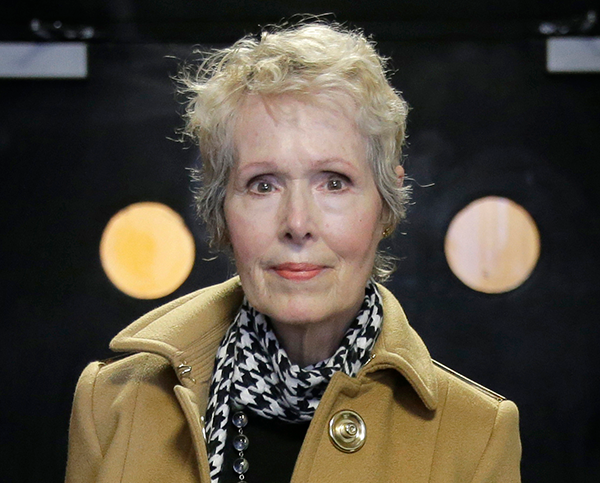Federal judge rejects Trump's quid-pro-quo DNA offer in suit by rape accuser

E. Jean Carroll has accused former President Donald Trump of raping her in the 1990s, and of defaming her by denying that it happened. (AP Photo/Seth Wenig, File)
A federal judge in Manhattan, New York City, has ruled against former President Donald Trump after he belatedly offered to provide a DNA sample in a suit filed by a woman who accused him of sexual assault.
In a Feb. 15 opinion, U.S. District Judge Lewis A. Kaplan refused to reopen discovery. The decision followed Trump’s offer to provide a DNA sample in exchange for missing pages of a forensic analysis of the dress that his accuser says she wore on the day in question.
The plaintiff, E. Jean Carroll, has accused Trump of raping her in a Bergdorf Goodman dressing room in the 1990s and of defaming her by denying that it happened. Carroll first sought a DNA sample from Trump in January 2020.
Carroll’s lawyer had told the court in a Feb. 10 letter that Trump’s offer was “a transparent effort to manufacture a dispute” that would delay the first day of Carroll’s civil trial for damages and prejudice potential jurors.
Carroll has said she kept the dress in her closet until a 2019 photo shoot for New York magazine, which was publishing an excerpt from Carroll’s book that made the rape claim.
The lab report on the dress did not detect any indicators showing the presence of semen, Kaplan said. But it did find skin cells on the sleeves of the dress, some of which came from a male. The report referenced an appendix that was not included when the document was turned over in discovery.
The appendix related to “electropherograms” generated in reaching the report’s conclusions, but Trump has not explained their relevance, Kaplan said.
Even if there is a DNA match, it would only show there was some encounter between Trump and Carroll when she was wearing the dress, Kaplan said. And a finding that Trump’s DNA is not on the dress would not disprove the rape accusation.
Granting Trump’s request would lead to new expert analyses “inevitably leading to further reports and discovery” that would almost certainly delay the trial, Kaplan said.
“Mr. Trump was anything but diligent in seeking the appendix to the DNA report,” Kaplan said. “His counsel of course either (1) knew of the omission of the appendix and decided not to ask for it or (2) were grossly negligent in failing to read the report. If the former, he is not now entitled to change his mind. If the latter, he was not diligent by any stretch of the imagination. He has not provided any satisfactory justification for the current request.”
Nor has Trump provided “any legitimate basis” to accept his offer to provide the DNA in exchange for releasing the report appendix, Kaplan said.
Carroll’s initial lawsuit, filed in New York state court and removed to federal court, accused Trump of libeling her by denials he made in 2019. Trump’s DNA offer was made in a second suit filed by Carroll in November 2022 under New York’s Adult Survivors Act. The law gives adults alleging sexual assault a one-year window to sue. That suit alleges battery and additional instances of libel over a statement that Trump made in 2022.
Both suits are pending before Kaplan, a judge in the Southern District of New York.
Trump’s new lawyer, Joseph Tacopina, had made the DNA-for-an-appendix proposal in a Feb. 10 letter.
Business Insider reported that Trump had hired Tacopina in a Jan. 31 story. Alina Habba and Michael T. Madaio are still listed as lawyers for Trump in Kaplan’s opinion.
See also:
ABAJournal.com: “2nd Circuit gives Trump chance to avoid rape defamation suit with ruling on employee status”
ABAJournal.com: “Afternoon Briefs: Author sues Trump for defamation; court tosses bias suit by white male lawyer”
ABAJournal.com: “Taking same stance as former AG Barr, Biden’s DOJ seeks to defend Trump in defamation suit by rape accuser”
Write a letter to the editor, share a story tip or update, or report an error.



